
As the population grows, demand for healthcare professionals increases, including support staff like patient access representatives.
Patient access is an essential aspect of the healthcare system that emphasizes patients receiving appropriate, efficient, and timely care.
The role also encompasses administrative processes like appointment scheduling, insurance verification, patient registration, and other office services.
Patient access representatives are needed across all healthcare facilities, from doctors’ and dentists’ offices to hospitals, insurance companies, and specialty clinics.
With the proper training, patient access representatives can work in any environment.
Read more about the best online patient access representative training programs!
Page Navigation
- Best Online Patient Access Representative Training Programs
- National Associate of Healthcare Access Management
- What Courses Are in an Online Patient Access Representative Program?
- Can You Earn a Patient Access Representative Certification Completely Online?
- How Long Does It Take to Earn a Patient Access Representative Certification Online?
- How Much Does an Online Patient Access Representative Certification Cost?
- Summary
Best Online Patient Access Representative Training Programs
When searching for the best online patient access representative programs, you must consider the degree type – a certificate, diploma, or associate degree.
A certificate requires six-to-12-months’ time commitment, a diploma takes one year, and an associate degree requires two years.
The program type also dictates the total program cost, with an associate degree being the most expensive option.
The certificate program is best if you want to jump into your career.
Still, the associate degree program is the best option for those who want a better foundation or are considering a bachelor’s degree.
Regardless of your educational and career goals, finding the best online patient access representative training program is essential.
These include the following:
Camden County College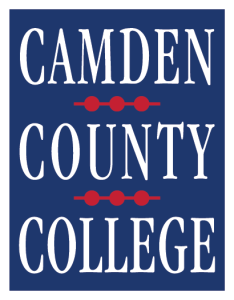
CCC offers a Health Information Technology program developed to prepare students to enter the health information management technology field.
Graduates of this program have many employment options, including as patient access representatives.
Since 2008, enrollment in the program has increased every year by 100%, which shows staggering growth in the field.
The program is accredited by the Commission on Accreditation for Health Informatics and Information Management Education.
This program is at an associate degree level, so core classes like English Composition I and II, Introduction to Statistics, and Computer Literacy are required in the first year.
The second year focuses on industry-specific classes, like Health Informatics, Introduction to Ambulatory Coding, Organizational Resources, and Diagnostic and Procedural Coding I and II.
Since students will be working in an active medical office, clinical placements are required to complete this program and require drug testing, health clearance, and background checks.
Dakota College at Bottineau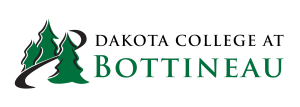
Located in Bottineau, North Dakota, students can choose from an online medical assistant certificate or associate degree.
Core classes for both include clinical specialties, principles of nutrition, and computer applications in healthcare.
Either degree qualifies those looking to enter the workforce as a patient access representative.
Both educational tracks require an internship for firsthand experience at a medical office, which helps find employment after graduation.
Admissions requires immunization records, ACT or placement examination scores, and a high school diploma.
Financial aid administrators can assist with completing FAFSA forms, with some students qualifying for up to $2,500 in institutional aid by earning excellent grades or demonstrating financial need.
In-state credits cost $189, while out-of-state costs $283 per credit hour.
The number of credits to earn the certificate is 38, and 61 credits for the associate degree.
Jackson College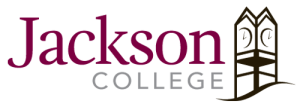
Jackson College is in Jackson, Michigan, but offers various online programs, including the online medical assistant certificate program.
The curriculum covers topics like medical office procedures, foundations of clinical practice, clinical procedures, and many other classes that prepare students for success in an entry-level position, including as a patient access representative.
The virtual classroom lectures end with a clinical practicum and capstone during the final semester.
The school requires a 2.5 GPA to remain in good academic standing throughout the program.
Jackson College accepts 19 transfer credits, which is attractive for those returning to school.
The admission process includes submitting the required forms for financial aid, watching and completing an online orientation, and then registering for classes.
Jackson College charges $176 per credit for in-state students and $264 per credit for out-of-state students, regardless of if you are taking an online program.
The number of credits required to graduate from this program is 34.
Keiser University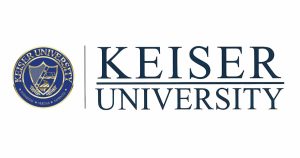
Keiser University offers a 60-credit online medical assistant associate degree, which requires a time commitment of approximately two years.
Core classes include computerized medical office management, medical ethics and law, clinical lecture, and customer service.
Graduates will be prepared to take the registered medical assistant examination.
The program costs $22,000, regardless of in-state or out-of-state location, and it’s accredited by the Commission on Accreditation of Allied Health Education Programs.
Associate degree programs also cover basic core classes, so a helpful financial savings option is to take them at a less expensive community college and transfer the credits to Keiser.
Those considering applying must have a high school diploma.
Graduates of the program advise potential candidates to attend a virtual open house, discuss educational goals with an admissions counselor, and then submit the required university admissions forms.
The school needs a minimum C grade across all classes to be in good academic standing throughout the program.
National Associate of Healthcare Access Management
NAHAM offers a leading patient access management program in partnership with Litmos, which provides outcomes-based education to help medical professionals improve operational performance.
Using Litmos’s virtual learning process, students can customize their curriculum based on specific needs, which includes utilizing themed bundles or taking individual courses.
Regardless of the path, the program prepares students for success as entry-level patient access management professionals.
Several individual course categories include medical collection soft skills, revenue cycle 101, 201, 301, and revenue cycle annual compliance.
Bundled courses include CHAA Certification Preparation, CHAM Certification Preparation, Patient Experience, Collections, HIPAA NAHAM AccessKeys, and Work from Home.
Penn Foster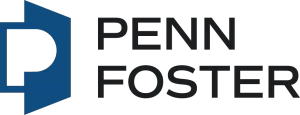
When searching for the best online programs, Penn Foster will be on every list.
The school offers a Patient Access Representative Career Diploma Program that prepares students to gain administrative skills and perform the required duties of working in a healthcare environment.
Graduates are well-prepared to work in public health clinics, doctors’ offices, healthcare facilities, hospitals, or insurance companies.
The curriculum was developed to ensure learner success and to prepare students for industry certification after graduation.
The well-rounded curriculum includes classes like medical billing and health insurance electronic medical records, body systems and medical terminology 1 and 2, medical office procedures, an introduction to Allied Health, and law, ethics, and confidentiality.
The average completion time is between six and nine months, and Penn Foster’s program is accredited so that you can qualify for financial aid.
Purdue University Global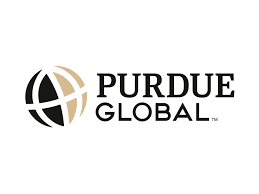
Located in Indianapolis, Purdue University offers an exceptional online medical assistant certificate program, which allows students to work in various medical capacities, including as a patient access representative.
The program provides detailed coursework and firsthand instruction, including patient referrals, reception, accounting, customer service, general responsibilities, and law and ethics.
Students must complete an externship at a local healthcare facility to gain in-person experience at a medical office.
Those interested in applying must hold a high school diploma, and the school has a generous transfer credit policy plus offers college credit for life experience.
The in-state and out-of-state cost per credit is the same at $371, with veterans and active-duty service members saving up to 33% on their education.
The number of credits to graduate with a certificate is 58, and the program qualifies students to sit for five professional certifications.
Rowan College South Jersey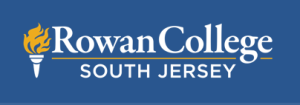
RCSJ offers a 50-hour Medical Administrative Assistant program, preparing students to function in many clerical and administrative positions within the healthcare industry, including as a patient access representative.
The curriculum covers the management of practice finances, medical records management, scheduling appointments, telephone techniques, insurance billing and coding, medical ethics and law, medical assisting, and interpersonal skills.
Program graduates are well-prepared to take the NHA Certified Medical Administrative Assistant exam.
University of Providence
Located in Great Falls, Montana, not Providence, Rhode Island, as expected, the University of Providence offers a non-accredited medical assistant online program for those who want to start their medical career as fast as possible.
The coursework covers ensuring patient comfort, maintaining records and other administrative skills, and law and ethics.
This program allows students to enter the workforce in various positions, including as patient access representatives.
Students must complete a 160-hour hands-on practicum at the end of the program to graduate.
Admission requirements include valid CPR certification, a drug screening, a high school diploma, and a criminal background check.
If necessary, incoming students must also be updated on immunizations.
The in-state and out-of-state cost per credit is $524, but those who work at the Great Falls Clinic could qualify for tuition reduction.
The program requires 16 credits to graduate, which takes around one year to complete.
What Courses Are in an Online Patient Access Representative Program?
Although patient access representative programs differ based on the degree type, duration, and school, the best training programs will include the following foundational courses:
- Administrative medical assisting
- Coding and billing procedures
- Daily job responsibilities and duties in a medical office
- Face-to-face, telephone, and digital patient communication
- Financial commitments like patient and insurance bill procedures
- Hands-on experience, including using an Electronic Health Records simulator for everyday medical office tasks
- Law and ethics, including HIPAA compliance
- Medical terminology
- Pharmacology
- Understanding health insurance
Additionally, the best programs prepare students to sit for national certification exams at the end of the program.
These include the Certified Electronic Health Record Specialist and Certified Medical Administrative Assistant designations.
The National Healthcareer Association administers these examinations.
Can You Earn a Patient Access Representative Certification Completely Online?
Since patient access representatives deal with the front-of-the-house administrative tasks, a certification can be earned online.
Those wanting to work in this field must take a patient access representative program.
However, other programs, like medical assisting, also qualify students to become patient access professionals and give them additional front-office and back-office skills, which can be a great stepping stone in the medical industry.
The primary difference is medical assisting requires an externship at the end of the program for students to gain experience and implement the skills they learned during the program.
How Long Does It Take to Earn a Patient Access Representative Certification Online?
Patient Access Representative online training programs are usually self-paced, which means there is no set schedule to allow for flexibility.
The time requirement is based on the degree type you are attempting to achieve.
Certificate programs can take six to 12 months and focus specifically on patient access representative topics.
Diploma programs take around 12 months and are more comprehensive than certificate programs, neither requiring core classes.
Associate degree programs require a two-year time commitment but have foundational core classes like English and Math, but also have more comprehensive healthcare classes than the diploma.
An associate degree program is an excellent option for those considering earning a bachelor’s degree in healthcare.
How Much Does an Online Patient Access Representative Certification Cost?
Like the time commitment, an online patient access representative certification cost varies considerably based on several factors, including degree type, time commitment, required materials, location, and the school’s reputation.
Short-term certificate courses can cost under $1,000 but may not have a great reputation in the industry.
A diploma program can cost several thousand dollars, and a two-year associate degree program can cost in the tens of thousands of dollars.
Remember, tuition costs may not include medical equipment, textbooks, and certification exam fees, so it’s essential to understand the tuition breakdown before starting the program.
Summary
Students interested in entering the medical field often consider a patient access representative degree with more administrative, front-office requirements.
This is an excellent stepping stone to advance your career in healthcare, as many students decide to jump right into their careers and earn higher degrees later.
While most schools do not offer program access representative programs, other programs like medical assisting, healthcare information technology, and medical administrative assisting exist.
One of the main benefits of these other programs is that students learn a broad range of information that allows them to enter or advance to different medical areas in the future.
Program time commitment varies based on the degree type, including several months for a certificate, one year for a diploma, and two years for an associate degree.
Tuition cost is commensurate with the amount of time spent in school, with certificates often costing under $1,000, diplomas costing several thousand dollars, and associate degrees in the tens of thousands of dollars.
Regardless of your path, entering a patient access representative or related program will help you find employment quickly and advance your career in the future!






